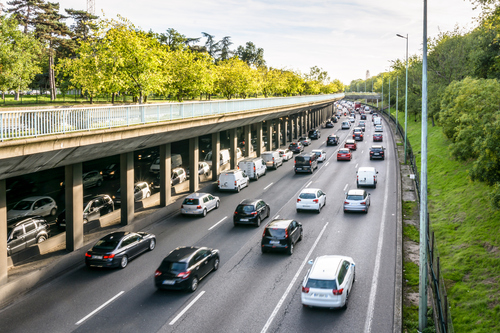Améliorer la qualité de l’air
Sous la pression des instances européennes, la France a mis en place des zones à faibles émissions (ZFE) pour améliorer la qualité de l’air, notamment dans les grandes agglomérations. Désormais, une collectivité territoriale peut choisir de restreindre ou d’interdire l’accès de tout ou partie de son territoire à la circulation, au stationnement des véhicules les plus polluants, selon les critères et la période de son choix. Chacune est également libre de fixer des dérogations à ces restrictions.
Le fonctionnement des ZFE repose sur les vignettes Crit’Air qui permettent de distinguer les véhicules en fonction de leur niveau d’émission de polluants. De fait, les véhicules les plus polluants sont les premiers à disparaître de ces zones.
Interdiction de circulation pour les véhicules dotés d’une vignette Crit’Air 4
Depuis le 1er juin 2021, les véhicules dotés d’une vignette Crit’Air 4 ne peuvent plus circuler en journée dans la ZFE de la Métropole du Grand Paris. Cette interdiction s’applique en semaine, entre 8 heures et 20 heures, hors jours fériés, dans un périmètre situé à l’intérieur de l’A86.
Sont donc concernés :
- Les véhicules à moteur diesel Euro 1, 2 ou 3 immatriculés avant le 31 décembre 2005,
- Les véhicules essence immatriculés avant le 31 décembre 1996.
Les automobilistes qui ne respectent pas ces nouvelles règles s’exposent à une amende de 68 euros.
La ZFE concerne actuellement 67 communes de la Métropole du Grand Paris, soit plus de 9 habitants sur 10. Certaines villes comme Bobigny et Créteil refusent toujours de faire appliquer ces restrictions.
Des dérogations en faveur des professionnels
La métropole a dû assouplir les règles pour s’adapter aux professionnels frappés de plein fouet par la crise du Covid-19.
Des dérogations sont prévues, jusqu’au 30 juin 2022, pour :
- Les véhicules des entreprises ayant souscrit un Prêt Garanti par l’État (PGE),
- Les véhicules des entreprises ayant bénéficié du fonds de solidarité réservé aux acteurs économiques impactés par les conséquences de la pandémie,
- Les véhicules des entreprises ayant obtenu un prêt rebond mis en place par la région Île-de-France ou proposé par le Fonds Résilience Île-de-France et collectivités.
Dans un communiqué, les organisations patronales et les chambres consulaires franciliennes ont salué cette décision rappelant que « la croissance économique et l’emploi en Île-de-France nécessitent que les entreprises puissent se déplacer et stationner sur l’ensemble des territoires où s’exerce leur activité ».
